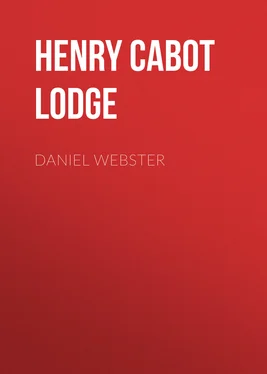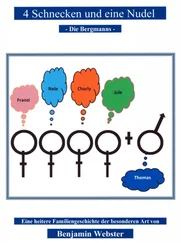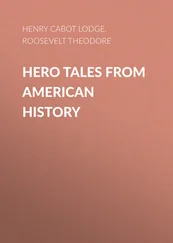Henry Cabot Lodge - Daniel Webster
Здесь есть возможность читать онлайн «Henry Cabot Lodge - Daniel Webster» — ознакомительный отрывок электронной книги совершенно бесплатно, а после прочтения отрывка купить полную версию. В некоторых случаях можно слушать аудио, скачать через торрент в формате fb2 и присутствует краткое содержание. Жанр: Биографии и Мемуары, История, foreign_edu, foreign_antique, foreign_prose, на английском языке. Описание произведения, (предисловие) а так же отзывы посетителей доступны на портале библиотеки ЛибКат.
- Название:Daniel Webster
- Автор:
- Жанр:
- Год:неизвестен
- ISBN:нет данных
- Рейтинг книги:5 / 5. Голосов: 1
-
Избранное:Добавить в избранное
- Отзывы:
-
Ваша оценка:
- 100
- 1
- 2
- 3
- 4
- 5
Daniel Webster: краткое содержание, описание и аннотация
Предлагаем к чтению аннотацию, описание, краткое содержание или предисловие (зависит от того, что написал сам автор книги «Daniel Webster»). Если вы не нашли необходимую информацию о книге — напишите в комментариях, мы постараемся отыскать её.
Daniel Webster — читать онлайн ознакомительный отрывок
Ниже представлен текст книги, разбитый по страницам. Система сохранения места последней прочитанной страницы, позволяет с удобством читать онлайн бесплатно книгу «Daniel Webster», без необходимости каждый раз заново искать на чём Вы остановились. Поставьте закладку, и сможете в любой момент перейти на страницу, на которой закончили чтение.
Интервал:
Закладка:
The cause was then argued again on both sides and with signal ability. In point of talent the counsel for the college were vastly superior to their opponents, but Sullivan and Bartlett were nevertheless strong men and thoroughly prepared. Sullivan was a good lawyer and a fluent and ready speaker, with great power of illustration. Bartlett was a shrewd, hard-headed man, very keen and incisive, and one whom it was impossible to outwit or deceive. He indulged, in his argument, in some severe reflections upon Mr. Webster's conduct toward Wheelock, which so much incensed Mr. Webster that he referred to Mr. Bartlett's argument in a most contemptuous way, and strenuously opposed the publication of the remarks "personal or injurious to counsel."
The weight of the argument for the college fell upon Mason and Smith, who spoke for two and four hours respectively. Sullivan and Bartlett occupied three hours, and the next day Mr. Webster closed for the plaintiffs in a speech of two hours. Mr. Webster spoke with great force, going evidently beyond the limits of legal argument, and winding up with a splendid sentimental appeal which drew tears from the crowd in the Exeter court-room, and which he afterwards used in an elaborated form and with similar effect before the Supreme Court at Washington.
It now becomes necessary to state briefly the points at issue in this case, which were all fully argued by the counsel on both sides. Mr. Mason's brief, which really covered the whole case, was that the acts of the Legislature were not obligatory, 1, because they were not within the general scope of legislative power; 2, because they violated certain provisions of the Constitution of New Hampshire restraining legislative power; 3, because they violated the Constitution of the United States. In Farrar's report of Mason's speech, twenty-three pages are devoted to the first point, eight to the second, and six to the third. In other words, the third point, involving the great constitutional doctrine on which the case was finally decided at Washington, the doctrine that the Legislature, by its acts, had impaired the obligation of a contract, was passed over lightly. In so doing Mr. Mason was not alone. Neither he nor Judge Smith nor Mr. Webster nor the court nor the counsel on the other side, attached much importance to this point. Curiously enough, the theory had been originated many years before, by Wheelock himself, at a time when he expected that the minority of the trustees would invoke the aid of the Legislature against him, and his idea had been remembered. It was revived at the time of the newspaper controversy, and was pressed upon the attention of the trustees and upon that of their counsel. But the lawyers attached little weight to the suggestion, although they introduced it and argued it briefly. Mason, Smith, and Webster all relied for success on the ground covered by the first point in Mason's brief. This is called by Mr. Shirley the "Parsons view," from the fact that it was largely drawn from an argument made by Chief Justice Parsons in regard to visitatorial powers at Harvard College. Briefly stated, the argument was that the college was an institution founded by private persons for particular uses; that the charter was given to perpetuate such uses; that misconduct of the trustees was a question for the courts, and that the Legislature, by its interference, transcended its powers. To these general principles, strengthened by particular clauses in the Constitution of New Hampshire, the counsel for the college trusted for victory. The theory of impairing the obligation of contracts they introduced, but they did not insist on it, or hope for much from it. On this point, however, and, of course, on this alone, the case went up to the Supreme Court. In December, 1817, Mr. Webster wrote to Mr. Mason, regretting that the case went up on "one point only." He occupied himself at this time in devising cases which should raise what he considered the really vital points, and which, coming within the jurisdiction of the United States, could be taken to the Circuit Court, and thence to the Supreme Court at Washington. These cases, in accordance with his suggestion, were begun, but before they came on in the Circuit Court, Mr. Webster made his great effort in Washington. Three quarters of his legal argument were there devoted to the points in the Circuit Court cases, which were not in any way before the Supreme Court in the College vs. Woodward. So little, indeed, did Mr. Webster think of the great constitutional question which has made the case famous, that he forced the other points in where he admitted that they had no proper standing, and argued them at length. They were touched upon by Marshall, who, however, decided wholly upon the constitutional question, and they were all thrown aside by Judge Washington, who declared them irrelevant, and rested his decision solely and properly on the constitutional point. Two months after his Washington argument, Mr. Webster, still urging forward the Circuit Court cases, wrote to Mr. Mason that all the questions must be brought properly before the Supreme Court, and that, on the "general principle" that the State Legislature could not divest vested rights, strengthened by the constitutional provisions of New Hampshire, he was sure they could defeat their adversaries. Thus this doctrine of "impairing the obligation of contracts," which produced a decision in its effects more far-reaching and of more general interest than perhaps any other ever made in this country, was imported into the case at the suggestion of laymen, was little esteemed by counsel, and was comparatively neglected in every argument.
It is necessary to go back now, for a moment, in the history of the case. The New Hampshire court decided against the plaintiffs on every point, and gave a very strong and elaborate judgment, which Mr. Webster acknowledged was "able, plausible, and ingenious." After much wrangling, the counsel agreed on a special verdict, and took the case up on a writ of error to the Supreme Court. Mason and Smith were unable or unwilling to go to Washington, and the case was intrusted to Mr. Webster, who secured the assistance of Mr. Joseph Hopkinson of Philadelphia. The case for the State, hitherto ably managed, was now confided to Mr. John Holmes of Maine, and Mr. Wirt, the Attorney-General, who handled it very badly. Holmes, an active, fluent Democratic politician, made a noisy, rhetorical, political speech, which pleased his opponents and disgusted his clients and their friends. Mr. Wirt, loaded with business cares of every sort, came into court quite unprepared, and endeavored to make up for his deficiencies by declamation. On the other side the case was managed with consummate skill. Hopkinson was a sound lawyer, and, being thoroughly prepared, made a good legal argument. The burden of the conflict was, however, borne by Mr. Webster, who was more interested personally than professionally, and who, having raised money in Boston to defray the expenses of the suit, came into the arena at Washington armed to the teeth, and in the full lustre of his great powers.
The case was heard on March 10, 1818, and was opened by Mr. Webster. He had studied the arguments of his adversaries below, and the vigorous hostile opinion of the New Hampshire judges. He was in possession of the thorough argument emanating from the penetrating mind of Mr. Mason and fortified and extended by the ample learning and judicial wisdom of Judge Smith. To the work of his eminent associates he could add nothing more than one not very important point, and a few cases which his far-ranging and retentive memory supplied. All the notes, minutes, and arguments of Smith and Mason were in his hands. It is only just to say that Mr. Webster tells all this himself, and that he gives all credit to his colleagues, whose arguments he says "he clumsily put together," and of which he adds that he could only be the reciter. The faculty of obtaining and using the valuable work of other men, one of the characteristic qualities of a high and commanding order of mind, was even then strong in Mr. Webster. But in that bright period of early manhood it was accompanied by a frank and generous acknowledgment of all and more than all the intellectual aid he received from others. He truly and properly awarded to Mason and Smith all the credit for the law and for the legal points and theories set forth on their side, and modestly says that he was merely the arranger and reciter of other men's thoughts. But how much that arrangement and recitation meant! There were, perhaps, no lawyers better fitted than Mason and Smith to examine a case and prepare an argument enriched with everything that learning and sagacity could suggest. But when Mr. Webster burst upon the court and the nation with this great appeal, it was certain that there was no man in the land who could so arrange arguments and facts, who could state them so powerfully and with such a grand and fitting eloquence.
Читать дальшеИнтервал:
Закладка:
Похожие книги на «Daniel Webster»
Представляем Вашему вниманию похожие книги на «Daniel Webster» списком для выбора. Мы отобрали схожую по названию и смыслу литературу в надежде предоставить читателям больше вариантов отыскать новые, интересные, ещё непрочитанные произведения.
Обсуждение, отзывы о книге «Daniel Webster» и просто собственные мнения читателей. Оставьте ваши комментарии, напишите, что Вы думаете о произведении, его смысле или главных героях. Укажите что конкретно понравилось, а что нет, и почему Вы так считаете.












